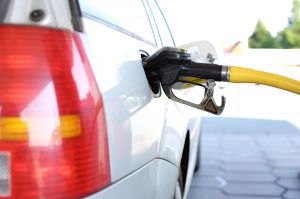
Many cars today include cameras, radar, and hundreds of electronic units to monitor and control every aspect of the vehicle.
Although these components have primarily been used for improving safety of the vehicle, researchers CSU and Western Michigan University worked with Toyota engineers to understand if these systems could also be used to improve fuel economy.
The research investigated the potential for improving fuel economy through managing the rate of acceleration of a vehicle.
For example, imagine a car can sense that you are stopped at a stop light on a road that has a 45 mph speed limit. Once the light turns green, you will begin accelerating away from the light until you reach the speed limit.
The vehicle, using a real-time algorithm, can help manage the rate at which you accelerate, leading to a small but significant fuel economy improvement.
The researchers found that this improvement was true even when tested on a Toyota Prius, the most fuel-efficient vehicle on the road today.
The team of researchers included
- Western Michigan University: mechanical and aerospace engineering – Zachary Asher (CSU ‘18), assistant professor
- Colorado State University: systems engineering – David Trinko, Ph.D. candidate; Thomas Bradley, professor and department head
- Toyota Motor Engineering and Manufacturing – Joshua Payne, gasoline hybrid vehicle engineer; Benjamin Geller (CSU ‘14), principal engineer
Read the full report here.